Faculty Learning Communities
Registration Now Open for AY2024/25 Learning Communities.
Register to Participate in a AY2024/25 Learning Community!
Faculty learning communities are defined as “cross-disciplinary faculty and staff group of 6-15 members that engage in ‘an active, collaborative, yearlong program with a curriculum about enhancing teaching and learning and with frequent seminars and activities that provide learning, development, the scholarship of teaching, and community building’” (Newman, 2017, p. 428).
At Peabody, the Learning Innovation team provides the frameworks and financial and structural supports for faculty to initiate, participate in, and report out of learning communities. These communities are provided platforms to share their findings, outcomes, and recommendations with both their peers and leadership, with the goal of improving the teaching and learning experience across the institution in a variety of ways.
- Community Guidelines
- Chair Responsiblities
- AY2024/25 Learning Communities
- Register to Participate in a AY2024/25 Learning Community!
Community Guidelines
A faculty learning community eligible for funding includes some or all of the following:
- One faculty Chair and one faculty Co-Chair.
- Members from two or more faculty departments representing both the Conservatory and the Preparatory. Communities with a single department discussing topics unique to that department will also be considered.
- One or more graduate or doctoral student representatives.
- Selection of a topic with the potential to impact teaching and learning at Peabody in ways both impactful and relevant to the Breakthrough Plan.
Funding up to $1250 per learning community per year will cover purchases for educational purposes, including but not limited to materials (books, research materials, etc.) and guest speaker stipends.
Chair Responsibilities
Each learning community should have one Chair and one Co-Chair to administer the community and keep it on track. Chairs and Co-Chairs of a learning community will:
- Lead 5 or more conversations with community members per academic year,
- Work to guarantee attendance and engagement among the community,
- Suggest, provide, and secure materials and guest speakers utilizing the community’s allocated budget,
- Administer and encourage participation in the community’s topic channel within the “Peabody Learning Communities” Microsoft Team.
- Present findings at the end of the academic year via a minimum 1-page report and a 20-minute presentation to peers, and
- Each receive one $750 stipend each in addition to the learning community’s budget, upon completion of deliverables at the conclusion of the academic year.
AY2024-25 Learning Communities
- Bridging Music and Dance: Collaborative Possibilities
- Best Practices in Mentoring Students
- Sound Studies and Sonic/Media Arts
- Performing Arts and Health Research
- Teaching International Students: Pedagogical Issues/Strategies and Overall Experiences
- Technology in Piano Instruction
- AI and the Arts
Bridging Music and Dance: Collaborative Possibilities
Chairs: Kelly Hirina and Ed Tetreault
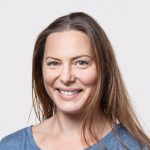
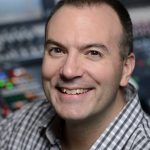 We’re excited to focus on elevating the collaborative experience at the Peabody Conservatory. Specifically, we’ll explore how dance, composition, and applied faculty can enhance interdisciplinary projects.
We’re excited to focus on elevating the collaborative experience at the Peabody Conservatory. Specifically, we’ll explore how dance, composition, and applied faculty can enhance interdisciplinary projects.
Join us to brainstorm ways to deepen involvement of our current performance collaboration between departments, such as the composition, computer music and dance departments. How could this project increase its capacity by incorporating students and faculty with a focus in voice or a range of instruments? Could this be through curriculum building, extracurricular activities, or experiential learning? We aim to offer further guidance within collaborative projects, creating new opportunities for cross-media initiatives.
Additionally, we will explore how music and dance can overlap more in both curriculum and performance opportunities to increase collaborative projects and visibility at Peabody enriching the faculty, student, and audience experience. Do you imagine other possibilities to intertwine music and dance within the school? We invite you to share your ideas and help shape this new trajectory. Let’s innovate together!
Best Practices in Mentoring Students
Chairs: Vid Smooke and Elizabeth Futral

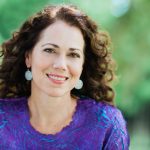 In this community, faculty will work collaboratively towards becoming better mentors for our students. We will consider how to help students define what success means to them and how to help them achieve their personal goals. We will hear from guest coaches who have found creative paths towards becoming fulfilled artists. We will discuss best practices towards helping our students make their communities more equitable and supportive. We will work towards crafting a Peabody Student Mentoring Handbook that could be published through the library.
In this community, faculty will work collaboratively towards becoming better mentors for our students. We will consider how to help students define what success means to them and how to help them achieve their personal goals. We will hear from guest coaches who have found creative paths towards becoming fulfilled artists. We will discuss best practices towards helping our students make their communities more equitable and supportive. We will work towards crafting a Peabody Student Mentoring Handbook that could be published through the library.
Sound Studies and Sonic/Media Arts
Chairs: Lyn Goeringer and Bryan Jacobs
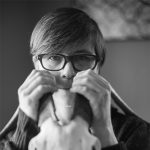
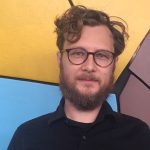 We invite practitioners and scholars from Peabody and the broader Johns Hopkins community whose research intersects and engages in Sound Studies and Sonic/Media Arts. Though we allow a broad interpretation for these fields, we are looking more specifically at Sound Studies as a field of research that theorizes and engages with sound from a cultural and phenomenological standpoint, with Sonic and Media Arts as a stage where these concepts are explored for more public audiences.
We invite practitioners and scholars from Peabody and the broader Johns Hopkins community whose research intersects and engages in Sound Studies and Sonic/Media Arts. Though we allow a broad interpretation for these fields, we are looking more specifically at Sound Studies as a field of research that theorizes and engages with sound from a cultural and phenomenological standpoint, with Sonic and Media Arts as a stage where these concepts are explored for more public audiences.
Over the last twenty years, sound studies have become a major component in musicological and media studies discourse around electronic music, sonic arts/sound art, and new media practices. For many, this has become a critical framework from which new music, sound art works are created, and informs daily practice within the field. For researchers, this framework has allowed new methods of analysis and critique so that we can better investigate contemporary sonic practices and their cultural impact.
We will start of the year working towards a public showcase of research of members, and in the Spring, we will work collectively to bring in visiting artists and scholars who benefit the community. (Who will be decided in the fall, collectively with group members.)
Performing Arts and Health Research
Chair: Sarah Hoover
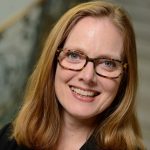 Join us for the second year of our Faculty Learning Community, dedicated to integrating health promotion into pedagogy and policies. This year, we will set a research agenda focusing on the impact of research on pedagogy, performance, and well-being. Our members are eager to learn from the latest research on performance health, apply this knowledge, and stay updated on Peabody’s health initiatives. We aim to clarify pathways for engaging in research, offering support and guidance to all interested. Whether you are a seasoned or novice researcher, join us to explore how research in music, dance, and health can enhance pedagogy and performance at Peabody.
Join us for the second year of our Faculty Learning Community, dedicated to integrating health promotion into pedagogy and policies. This year, we will set a research agenda focusing on the impact of research on pedagogy, performance, and well-being. Our members are eager to learn from the latest research on performance health, apply this knowledge, and stay updated on Peabody’s health initiatives. We aim to clarify pathways for engaging in research, offering support and guidance to all interested. Whether you are a seasoned or novice researcher, join us to explore how research in music, dance, and health can enhance pedagogy and performance at Peabody.
Teaching International Students: Pedagogical Issues/Strategies and Overall Experiences
Chair: Ahlam Musa and Christina Manceor
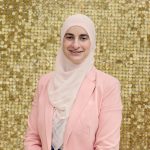
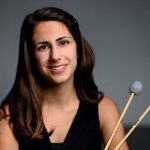 Our FLC is dedicated to enhancing the experience of Peabody’s international students. With over 30% of our student body being international, it’s essential to address their unique needs in and outside the classroom. We focus on understanding these needs, exploring effective teaching strategies, and fostering linguistic and cultural enrichment. Key topics include teaching non-native English speakers, bridging cultural differences, and designing inclusive courses. Participate in ongoing initiatives such as developing faculty resources. Join us to create a more inclusive and supportive educational environment.
Our FLC is dedicated to enhancing the experience of Peabody’s international students. With over 30% of our student body being international, it’s essential to address their unique needs in and outside the classroom. We focus on understanding these needs, exploring effective teaching strategies, and fostering linguistic and cultural enrichment. Key topics include teaching non-native English speakers, bridging cultural differences, and designing inclusive courses. Participate in ongoing initiatives such as developing faculty resources. Join us to create a more inclusive and supportive educational environment.
Technology in Piano Instruction
Chairs: Agustin Muriago and Hyun-Sook Park
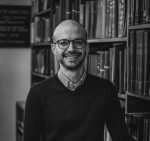
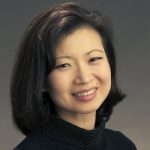 The use of technology has impacted our teaching in meaningful ways, and the last few years have only heightened its relevance in music instruction. This community explores tools that can enhance piano teaching and increase engagement and motivation among our students, regardless of their age and skill level. Our goal is to also develop a database of apps and platforms that can help piano teachers start or continue their journey with technology as a way to elevate their teaching and connect with their students more effectively.
The use of technology has impacted our teaching in meaningful ways, and the last few years have only heightened its relevance in music instruction. This community explores tools that can enhance piano teaching and increase engagement and motivation among our students, regardless of their age and skill level. Our goal is to also develop a database of apps and platforms that can help piano teachers start or continue their journey with technology as a way to elevate their teaching and connect with their students more effectively.
As a member of our community, you will have access to online resources and subscriptions to web-based platforms to stay up to date with innovative uses of technology in music instruction. You will also get the opportunity to learn from guest speakers (previous speakers include faculty members at The Juilliard School, Manhattan School of Music, and Peabody), and you will join a group of faculty members and graduate students who are reflecting on the ways in which technology is changing our field.
AI and the Arts
Chair: Learning Innovation
Learning Innovation has been in conversation with multiple faculty and staff since Spring 2024, including a Summer Collective, regarding AI and its potential effects and opportunities with regards to music and the arts. In last Summer’s Collective, we talked about the opportunities and challenges AI presented in classrooms and studios. This year faculty have expressed interested in AI’s impact on the arts themselves.
This learning community will explore the landscape of AI as it pertains specifically to the arts, discuss new developments, and determine programming for the larger Peabody community throughout the academic year.
Registration is Now Open for AY2024/25 Learning Communities!
Any faculty in the Conservatory or Preparatory can pariticpate in a learning community for the upcoming academic year. Communities run form October 1, 2024 – April 30, 2025.